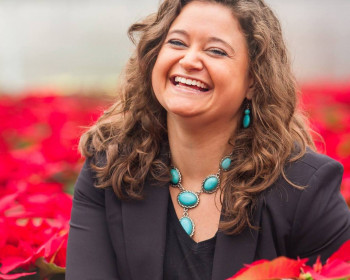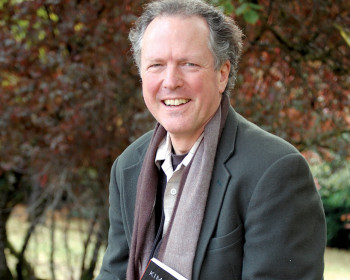Mason Rivers Ed.S. ’13, president, Oregon School Psychologists Association
Open gallery

For the last year, Mason Rivers NCSP, Ed.S. ’13 has been an advocate for school psychologists throughout the state as the president of the Oregon School Psychologists Association (OSPA). He is currently a school psychologist for the Beaverton School District, where he leads trainings for other school psychologists. Through his involvement with OSPA, Rivers has traveled all over the country and worked with leaders of the National Association of School Psychologists.
We caught up with him to talk about his time at Lewis & Clark, leadership, and what he sees as the biggest challenges facing the profession.
How did you initially get involved with OSPA as a graduate student at Lewis & Clark?
I initially joined OSPA as a student member in 2011. That year, my cohort voted me to represent Lewis & Clark as a student representative. The following year I helped create the Focus on School Psychology Students committee, which provides professional development opportunities for students throughout Oregon.
Can you talk about how OSPA has helped you in your career?
I have met many talented and influential school psychologists throughout the state and country. Networking opportunities have helped advance my career as well as my skills and abilities as a school psychologist. Working with OSPA has also provided opportunities for me to hone my leadership skills. School psychologists are in an ideal position to be leaders and change agents in schools.
How did your experience at LC prepare you for being a leader in the field?
The school psychology program at Lewis & Clark provided an exceptional environment to become a leader. The collaborative learning approach of the program motivated me to become an active participant in my education. The most important thing I stress to graduate students is: Go beyond attending class, listening to lectures, and completing course work. Take advantage of the collaborative nature of school psychology programs. Learn to advocate for what you need in order to develop your skills. This has also transferred to my work in OSPA leadership—instead of advocating for my own education and needs, I am now advocating for school psychologists throughout the state.
Why do you think it’s important for graduate students to engage with their professional organizations?
School psychologists tend to be isolated in their jobs so it can be difficult to stay current with what’s happening in the field. Professional organizations help school psychologists maintain connection and relevancy in the profession.
What is the most pressing issue facing school psychologists today?
School psychologists are underutilized in schools. Some school administrators don’t see the value in providing comprehensive services, or don’t understand what’s possible, or simply can’t afford it. Hopefully, more school leaders will see the benefits of providing comprehensive school psychological services. National best practices are for a ration of one school psychologist per 500-700 students. For reference, the ratio in my current position is 1:2000.
Here is an example of what can happen when a district is adequately staffed: Let’s say a school has significant attendance problems. Low attendance correlates to all kinds of poor outcomes for students and for schools. A school psychologist with comprehensive skills has extensive knowledge of what the research says about attendance, about student behavior and motivation for attending school, about how to implement programs and system-level changes, and how to evaluate them for success. If the district is adequately staffed, he can make a big impact.
What role do you hope to play in addressing those issues?
Professional organizations such as OSPA can play a pivotal role by helping ensure that school psychologists are trained to provide comprehensive services. We can play a significant role in educating school leaders about how to move beyond the testing grid into a more comprehensive service delivery model, where school psychologists are engaged to provide direct educational, behavioral, and mental health services for children and families, and to create supportive learning and social environments for all students.
Learn more about School Psychology at Lewis & Clark.
Graduate Communications is located in room 205 of Rogers Hall on the Graduate Campus.
voice 503-768-6054
fax 503-768-6053
Graduate Communications
Lewis & Clark
615 S. Palatine Hill Road
Portland OR 97219

